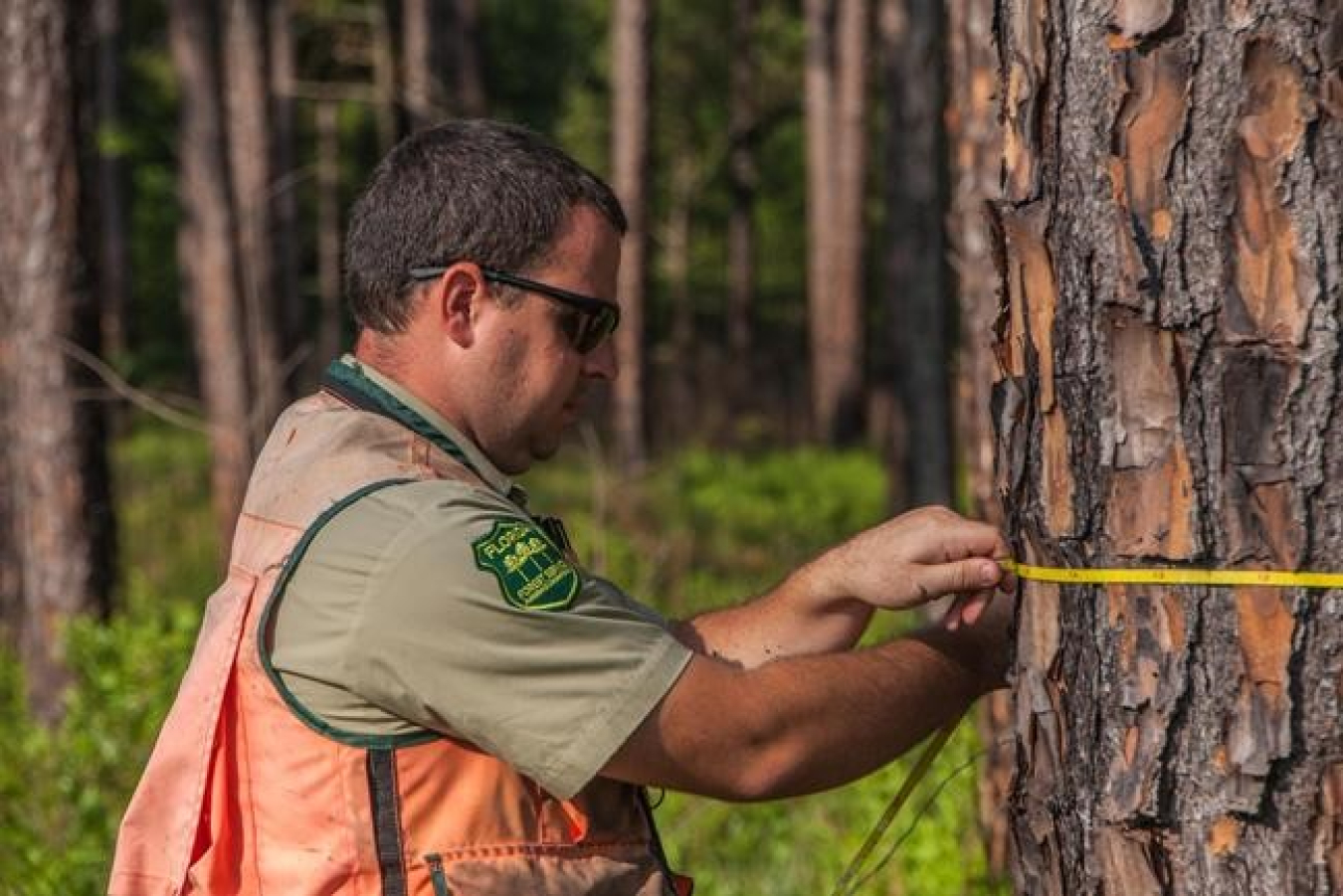
Photo courtesy of the Forest Service, U.S. Department of Agriculture.
The job of forestry technician is an entry-level position in bioenergy, in the agriculture, life, and physical sciences career sub-sector. Job seekers with agriculture, life, and physical sciences backgrounds or students studying science could consider this type of entry-level bioenergy job.
Forestry technicians work with other conservation scientists and technicians to ensure forest biomass is being sustainably harvested and used for bioenergy products. They perform experiments and collect data on forest quality, work with landowners and others on planning sustainable forestry management practices, monitor forest land operations, and ensure forestry activities are in compliance with regulations and policies. People in these positions may hold internships or entry-level jobs in bioenergy forestry.
Forestry Technician
| Alternate Title(s) | Forest Products Technologist; Forester-in-Training |
| Education & Training Level Description | Bachelor’s degree in Forestry, Forest Resources Management, Forest Ecosystem Management, Natural Resources, or Related Field. For specializing in Forest Products Technology, an academic background in forestry is required, and the degree should include at least 20 semester hours in forest products technology courses, wood products engineering, and forest products marketing. |
| Experience | 0–3 years |
| Job Skills |
|
| Job Profile | A critical goal of the bioenergy industry is to develop commercially viable and sustainable technologies for converting biomass feedstocks into finished liquid transportation fuels (e.g., renewable gasoline, diesel, and jet fuel), as well as bioproducts (chemicals and materials) and biopower. Forest resources are an important component of the feedstock from which to produce these end products. Forestry skills will be important in assessing and ensuring that forest biomass is harvested sustainably, and that key innovations in forest management ensure the development of a productive, sustainable, and efficient industry. Careers in forestry apply knowledge and understanding of forestry sciences and technology to ensure that forests are grown and utilized in a sustainable manner; that forest health is maintained through management, inspections, and rotations; and that best management practices are used to protect the environment (such as water, soil, biodiversity). They also work to ensure that timber is grown according to industry specifications and that the components that are used for bioenergy (usually harvest residues and byproducts from sawmill and pulpwood operations) and bioproducts (small diameter branches, forest thinnings) meet end processor requirements. Technologists apply their knowledge to generate new commercial applications for wood and fiber that is generated from forest biomass, such as pellets, biochar, and other energy-dense materials. The use of underutilized forest biomass is a key element of the bioeconomy, and helps maintain forest and ecosystem health, as well as decreases the risk of fires. |
More Entry-Level Agriculture, Life, and Physical Sciences Jobs in Bioenergy
Related Bioenergy Career Resources
Bioenergy Career Exploration Wheel

